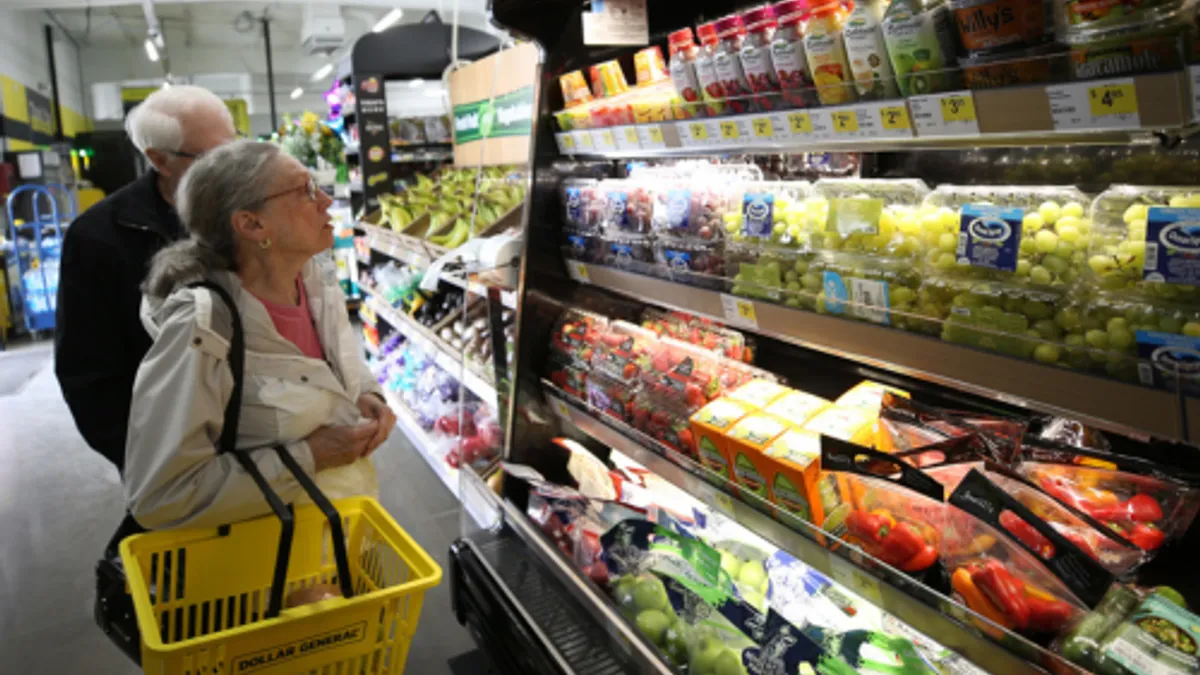Dive Brief:
- Dollar General is investing in artificial intelligence to enhance its ordering and stocking of fresh produce at stores.
- The discount retailer tapped Shelf Engine’s AI and machine learning solution, with plans to roll it out to 3,000 stores by the end of its current fiscal year, according to a release. The companies previously ran a two-phase pilot in 400 stores that began more than a year ago.
- The collaboration “is a strategic step towards improving our operational efficiency while serving our customers with improved in-stock levels of fresh produce,” Allen Warch, VP and division merchandise manager of fresh merchandise at Dollar General, said in the release.
Dive Insight:
Amid the demand and supply volatility of the past four years, many retailers have invested in AI to better plan and optimize inventory.
The term “AI” can be a big umbrella for various technologies, software and systems, the best of which are able to analyze and draw predictions from large and unstructured data sets.
A KPMG survey of retail and consumer executives last year found that they were 64% likely to apply AI toward trend and predictive analysis for inventory management. Another 2023 survey, from supply chain software company BlueYonder, found that demand forecasting and inventory optimization are among the top uses of AI and machine learning technologies by supply chain executives.
Shelf Engine says on its website that its forecasting solution “generates new probabilistic models for each unique SKU for every store, every day.” To build those models, it uses a store’s historical and daily sales, as well as external data that include “local events, news trends, weather, holidays, even school schedules,” according to the company.
Shelf Engine also uses profit models to automate ordering. In the release, the software company said its platform is “designed to generate orders, with a goal of optimizing in-stock levels that directly contribute to providing Dollar General customers with the freshest food possible.”
Other retailers have looked to AI to assist in their supply chain planning. Walmart for years has used AI in its demand forecasting.
More recently, apparel retailer American Eagle rolled out an AI tool last year with the aim of keeping its inventories lean while still meeting consumer demand that executives said have improved in-stock levels. Meanwhile, Amazon has built AI application to improve predictions for how much inventory it needs in its fulfillment centers to help maximize efficiency.















